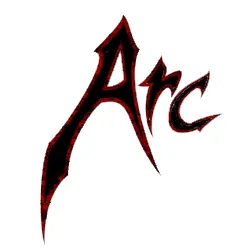I’m setting up a new hard drive and formatted it as exFAT. I liked the cross platform support and not having to deal with permissions when mounting the device. BUT it doesn’t support hardlinks, which I want to use for the *arr apps. Is NTFS the best pick, and I’ll just have to live with read only on mac?
My recommendation would be to use a hard disk in a single computer, and to use a single operating system for a single computer.
Then you pick the most capable, fastest, native FS that fits your bill.
If you need to transmit data between computers, use the network. It’s that it’s there for.
I’d 2nd this: you’re using it for downloading media, so presumably one of the computers is the one running the actual software that’s doing that. Just share the drive over the network from there, and pick the best-supported FS on that platform.
Why are you running servers with a data store on a partition that you mount on multiple operating systems?
ZFS?
I’m a big fan of ZFS, and I use it extensively. For a single hard drive, though, wouldn’t ext4 and a few NFS shares make a lot more sense?
zfs is fine on a single drive too, and its cross platform, which OP said they wanted (though not which platforms, which is important here). ext4 is junk on windows and nfs doesn’t work well either for windows, which i assume OP wants because they mention NTFS.
ZFS.
I just use ext4 on everything. It works pretty nicely.
It might be time to virtualize.
“*arr apps”?
Sonarr prowlarr radarr and many more. These are very powerful media download managers. I recommend using usenet.
I’m a huge fan of XFS for network mounts. I think everyone else here is right that the best filesystem will depend on the OS, and picking one to make it compatible with everything has serious tradeoffs.
Why specifically are you a fan of XFS for network mounts?
I didn’t have a great reason other than mind-blowing performance on my LAN, and with large files (which I have a lot of) performance is better too. Probably I’m not smart enough to answer this well, but I did just see this today: https://www.phoronix.com/review/linux-611-filesystems/2
Acronyms, initialisms, abbreviations, contractions, and other phrases which expand to something larger, that I’ve seen in this thread:
Fewer Letters More Letters NFS Network File System, a Unix-based file-sharing protocol known for performance and efficiency RAID Redundant Array of Independent Disks for mass storage ZFS Solaris/Linux filesystem focusing on data integrity
3 acronyms in this thread; the most compressed thread commented on today has 6 acronyms.
[Thread #913 for this sub, first seen 8th Aug 2024, 22:15] [FAQ] [Full list] [Contact] [Source code]
Use a network share
Ohhh I didn’t realize it didn’t matter if it was accessed over the network with samba. This’ll just be on a Debian server
Yeah, so in that case I’d just use ext4 or, if you want checksums, btrfs (though this doesn’t matter too much as btrfs currently doesn’t support raid in any real sense, so it can’t actually correct the data, just tell you it’s bad).
ZFS can do the checksums with RAID and error correction, but getting that on Linux (without using a specialty distro like TrueNAS Scale) is still a pain.
It’s not hard on Debian
Huh, TIL…






